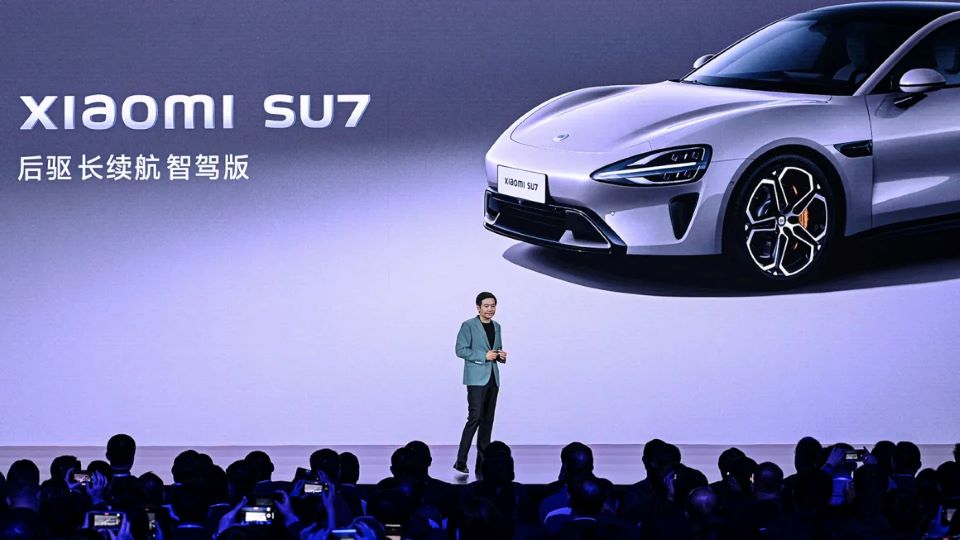Xiaomi unveils its own electric vehicle
Xiaomi, renowned for its budget-friendly smartphones and smart devices, ventures into the electric vehicle (EV) arena with the launch of its Xiaomi Speed Ultra 7 (SU7) sedan, presented by Lei Jun (pictured below), chairman and CEO, at an event in Beijing on 28 March 2024.

The SU7, positioned as a sporty four-door sedan, is a key component of Xiaomi's vision for an interconnected ecosystem merging "Human x Car x Home" technology, the company said on its official website. Priced between 215,900 yuan (some $29,800) and 299,900 yuan ($41,500) in China, the SU7 competes directly with Tesla's Model 3, boasting a starting price approximately $4,000 cheaper.
The competitive pricing positions Xiaomi favorably against foreign counterparts, such as Porsche and Tesla, according to Lei Jun.
With a starting range of 700 kilometers (435 miles), exceeding that of Tesla's Model 3 long-range version, the SU7 collected over 50,000 units ordered within 27 minutes of sales opening, he added.
Battery efficiency
Xiaomi especially praised its self-developed CTB Integrated Battery Technology through innovative Inverted Cell Technology, multifunctional elastic interlayer, and a minimalistic wiring system.
It features a battery integration efficiency of 77.8%, the highest of CTB batteries worldwide, a 24.4% overall performance improvement, and a height reduction of 17mm, with a maximum battery capacity of up to 150 kWh and theoretical CLTC recharge range exceeding 1,200 km.
More to read:
Tesla CEO promises to cut down prices during turbulent times
The sides of the battery cells feature 165 pieces of aerogel insulation material, capable of resisting temperatures up to 1000°C.
Also, its HyperEngine V8s, with a maximum speed of 27,200 rpm, 425kW output, and 635N·m peak torque, sets a global record for E-motors. HyperEngine V8s is still in development, expected to be mass-produced for Xiaomi EVs in 2025. The model on display has a HyperEngine V6/V6s E-motor, which is slightly inferior to V8 but yet surpassing the most powerful mass-produced electric motor globally, according to the official description.
More to read:
The longest range electric vehicles in 2023
The event witnessed the presence of key figures from more than 200 Chinese EV manufacturers. Despite government subsidies boosting the EV market, intense competition has led to a price war, driving down profit margins, but Chinese makers are hopeful that their cheaper models would challenge successfully European, Japanese and American auto giants.
Xiaomi's foray into EVs reflects a strategic shift, leveraging its established brand presence and technological prowess. Previously investing $10 billion into smart EVs, Xiaomi aims to capitalize on China's growing EV market, which is poised to account for 42% to 45% of auto sales in 2024, from 36% in 2023, according to Fitch Ratings.
***
NewsCafe is a small, independent outlet that cares about big issues. Our sources of income amount to ads and donations from readers. You can support us via PayPal: office[at]rudeana.com or paypal.me/newscafeeu. We promise to reward this gesture with more captivating and important topics.







